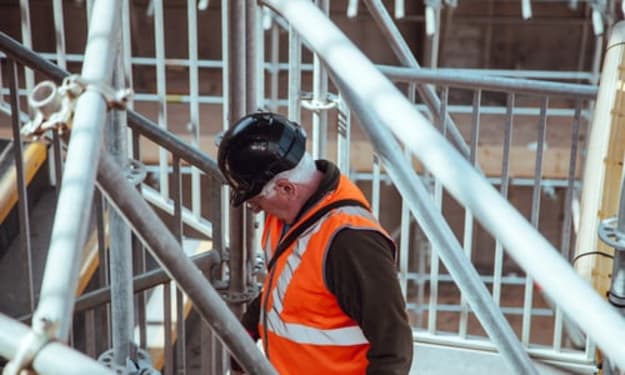Planning to adopt a child? Get all information on adoption law first!
Adoption Law

Adoption isn't just paperwork and choosing a child. Hence the procedure is sensitive and complicated. Let's talk about what you should know about adoption law.
In legal terms, adoption is the formal procedure of taking responsibility and the rights of a parent or guardian. After the adoption procedure, the adopted child becomes the legal heir of the guardian. The biological parents will have no right over the adopted child.
Adoption is the responsibility of two people, married or unmarried, to raise a human.
There are many reasons for adoption. A married couple, unable to conceive naturally, can adopt a child. If a child doesn't want to live with their parents, the government adoption agency can adopt the child. It is also called foster care adoption.
Some other reasons for adoption can be if the birth parents don't want to raise the child or if the birth parents are deceased.There is a whole legal procedure and many ways to adopt the child.
Every year in the US national adoption day is celebrated on November 20. According to a survey, about two million adoptions happen in America and 150,000 every year. Among these 150,000 adoptions 50,000 are foster care adoptions. Before adoption, consult a good lawyer for advice on adoption law.
To understand in-depth about adoption law visit, getlegal.com.
Adoption Law
Any country has its own set of laws on adoption depending on its population and traditions. In the US, adoption laws vary slightly from state to state. Let's talk about adoption laws for fraud and safe haven laws.
Adoption law for fraud
Anyone can commit adoption fraud for financial benefits or personal gains. Human nature is dicey. Birth mothers, adoption agencies, or adopters can have motives for criminal activity rather than giving the child a secure future.
Agencies fail to provide information about the background of the child. It leads to parents making uninformed decisions about adopting the child.
Online scams also happen, where the birth mother makes false adoption promises to multiple parents for financial gains. Adoption fraud laws don't exist. Fraud in adoption is treated in court under theft by deception or a felony. Punishments include fines or prison for 20 years.
Indiana has an adoption deception statute. Indiana makes adoption fraud a misdemeanor. If the birth mother has promised multiple parents for adoption to gain financial gains, the adoptive parents can sue the birth mother for several times the fee of the birth mother.
Adoption fraud examples
Frauds can happen in many ways. Their target is always naive, and their motive is personal or financial gain.
A few examples are:
Demanding money that is way above the limit can also lead to a scam.
Adoption agencies also hide information from the adoptive parents, like the emotional or physical history of the child or the background of the birth family.
Online adoption can be a scam, where a person can try selling children for money.
A woman lies to adoptive parents about her pregnancy for her financial gains.
Adoptive parents cut off ties with the birth mother after finalizing adoption.
Safe Haven Law
Safe haven law is to protect unwanted babies from getting abandoned by their birth mother. Due to the fear of being accused, birth mothers leave their newborns in dumpsters or unsafe places.
Under Safe haven laws, birth mothers can leave their children at safe places like churches, hospitals, or police offices. And this act won't be punishable because of the safe-haven law.
Safe haven law or baby mosses law serves two purposes:
1) To protect children from human trafficking and other harmful circumstances.
2) To give parents other choices than abandoning their child and facing legal charges.
All 50 states in the US have safe-haven laws. Parents have the choice of hiding their identity.
Safe Haven Locations
Any place in the states where the child will receive immediate care, like police stations, churches, hospitals, or fire stations, can be a safe place for leaving the child.
Further steps that the authorities of safe haven locations should take:
Inform the birth parents that the child will be up for adoption.
Try and get all the background information about the child and their family.
Immediately send the child for a proper medical check-up.
Informing an adoption center.
International Adoption Law
The international adoption process can be quick and less expensive for adoptive parents. As easy as the adoption process looks, it has its cons.
Language and cultural barriers can make international adoption complicated. Adoptive parents can find it hard to get complete background information about the baby. Learn more about international adoption law on getlegal.com.
Requirements of International Adoption
It is essential to enquire about all the international adoption laws from an informed lawyer before going ahead with the adoption procedure.
Countries that have signed the Hague convention have to follow a particular procedure. Countries that haven't signed the Hague convention have their own rules for international adoption.
Adoptive parents have to fulfill:
The requirement of the foreign country.
Immigration process of the US.
The process of citizenship and immigration service and the adoption laws of the state of residence to complete the adoption process.
If any of the procedures is left incomplete, adoptive parents may have to face legal charges.
International Adoption Process
If you are adopting from a foreign country, the child should meet the following criteria to acquire automatic citizenship of the US.
Should be younger than 18 years.
At least one of the adoptive parents should be a US citizen since birth or by naturalization.
Should be legally adopted, with full custody, by US citizen parents residing in the US.
The adoptive parents should have fulfilled all the immigration services.
The parents should have physical custody of the child, and the child should have a permanent resident address.
Adoption Process
Adoption is a big decision. It will be helpful to read through every step of the procedure before going through the adoption process in reality.
To locate adoption centers search, "adoption centers near me" or "kids for adoption." Independent adoption is also an option without the involvement of the agency. Both parties can decide how much time they want to spend together during pregnancy.
Ways of adoption
Surrogate Parenthood
Adoptive parents can locate a birth mother with surrogacy arrangements to adopt a child. Surrogacy is a contract with the birth mother for approximately nine months or until the child is born.
After the birth of the child, the mother hands over the custody to the adoptive parents.
There can be two scenarios
1) The surrogate mother conceived the child with the prospective father's sperm. In this case, he is the legal parent of the child. Only the mother has to adopt the child legally.
2) If the surrogate child isn't biologically related to either of the parents, both mother and father have to adopt the child legally.
Government Agencies or websites
Government agencies help in mediating between foster care and the adoptive parent. Just like parents want to adopt, many children in foster care wait for a home too.
Many social events also take place where parents can meet children who are ready for adoption.
Some helpful online government sites are
Finding an adoption agency
Intercountry Adoption
Adoption Agencies
These agencies mediate between the birth parents and adoptive parents. Adoptive parents submit their details and family background to the agency, and birth families review those details to choose a family.
Few adoption agencies also provide international adoption facilities.
Acquaintances
Spread the word among your family, friends, or at your workplace. Your known can help you in adoption.
Media
Advertising can also help in spreading the word and finding a birth family. Online or newspaper advertising can be helpful.
Lawyers
Lawyers working in adoption or family law can also be helpful. Lawyers can connect adoptive parents to the birth families even before the birth of the child. And they can even help with legal procedures after the birth.
Home Study Process
Many agencies prepare the adoptive parents for the adoption process. the steps in the home study process are:
1) Training:- Making the adoptive parents familiar with the adoption process and adoption laws. It helps the parents understand the children waiting for a family and making an informed choice.
2) Interviews: Social workers will interview the adoptive parents to understand them and their background. It also helps in finding a birth family.
3) Home visits: The agency will visit the home once to check if the house is safe for a child or not.
4) Health Check-ups: If one of the adoptive parents has a fatal disease, there can be difficulties in approval for adoption.
5) Financial condition: There is no requirement of a rich household, just that the parents can handle their finances properly.
6) References: The agency may ask you for your acquaintance's contact number to form a background picture of your family.
Types Of Adoption
Adoption types can differ according to the needs of the birth family, child, or adoptive parents. Here are some types of adoptions:
Agency Adoption
Agency adoptions can benefit you in many ways. They are skilled in the work. Hence they know what they are doing.
Agencies can help the adoptive parents find a perfect match or in understanding adoption laws.
There are two types of agencies:
Public Agency
Public agencies mostly have children with special needs or who are older. These agencies have limited services and counseling sessions but charge way less than a private agency.
Private Agency
Private agencies work with limited parents. They provide a lot of counseling sessions for both parents and the children.
Private agencies charge high fees. Also, they only deal with infants or pregnant mothers.
Independent adoption
Adoptive parents can directly stay in touch with the birth family. But there are chances of scams in an independent adoption. Adoptive parents have to deal with all the paperwork and adoption laws by themselves. There will be no mediator in between, and it will cost less.
Open and Closed Adoptions
Open Adoptions:- Adoptive parents and birth families make close contact during the pregnancy. In some cases, the relationship continues even after the birth of the child.
Closed adoptions:- In a closed adoption, both parties may or may not have any contact with each other. All procedures all handled by the agency which works with both the birth family and the adoptive parents.
Same-Sex Adoption
Same-sex marriages have faced a lot of resistance in adoption laws. There are adoption laws that are discriminatory against same-sex couples. These laws get challenged in court, and changes are likely.
Conclusion
Adoption is a noble step. It gives hope for a better future and a home to many children. However, the responsibility which comes along with it is enormous. Do not rush the decision.
If, as an adult, you are not sure about the procedure, take help. Talk to an informed and knowledgeable lawyer about all the adoption laws of your resident state.
Visit adoption agencies or attend social events organized by them to understand your needs better. It will also help you understand the needs of a child waiting to get adopted.
https://www.getlegal.com/legal-info-center/family-law-divorce/adoption-laws/





Comments
There are no comments for this story
Be the first to respond and start the conversation.